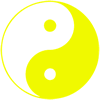 The Spleen in Chinese medicine is a yin organ. The Spleen is partnered with the Stomach, a yang organ. Together they are responsible for transforming food and drink into Qi and blood during the digestion process.
The Spleen in Chinese medicine is a yin organ. The Spleen is partnered with the Stomach, a yang organ. Together they are responsible for transforming food and drink into Qi and blood during the digestion process.
When the Spleen energy is strong, appetite and digestion are good. When the Spleen function is weak, there may be poor appetite, abdominal bloating, water retention and weight gain, and loose stools.
The Spleen controls the muscles and four limbs. When the Spleen is strong, nutrition from food is extracted efficiently and energy is distributed to the muscles. When the Spleen is weak, a person feels fatigued, especially after eating. Muscles will be weak. In severe cases, muscles may atrophy.
The Spleen not only distributes the essence of food to the body, it is also responsible for the transformation of fluids. Poor distribution of fluids may result in edema or the production of phlegm. The Spleen dislikes dampness. Dampness can hamper the function of the Spleen whether this is due to diet (too much cold or raw food) or weather. High humidity and cold, damp weather may affect the Spleen. Women in particular are prone to an invasion of exterior Dampness especially during the menses or following childbirth.
The Spleen not only plays an important role in the production of Blood from food, but is also said to control the Blood. When the Spleen energy is deficient and this function of controlling the Blood is impaired, a person may bruise easily. Nosebleeds and heavy menstrual periods may also occur due to Spleen qi deficiency.
The Spleen is associated with the Earth element and the color yellow. A yellow, sallow complexion is associated with a Spleen imbalance.
Because digestion is central to the function of the Spleen, there is a close relationship between the Spleen and the mouth. When the Spleen qi is normal, the sense of taste is good and the lips appear moist and pink.
The Spleen is associated with the sweet taste and smell. A person with weak Spleen qi may report a sweet, sticky taste in the mouth. Or more commonly, the craving of sweets is a huge red flag in Chinese medicine diagnosis that the Spleen is out of balance. Over-consumption of sugar blocks the ability of the Spleen to transform and creates Dampness in the body. It’s a vicious cycle!
The Spleen, Heart and Kidney all influence the process of thinking and memory. The Spleen is most influential on our capacity to study, memorize facts, focus and concentrate. Ironically, too much mental work for a sustained period of time will weaken the Spleen qi.
The emotion associated with the Spleen is worry. Brooding and overthinking will weaken the Spleen. Conversely, those with Spleen qi deficiency may tend to worry. Spleen qi deficiency may be one explanation for a person not being able to fall asleep easily. People with Spleen qi deficiency lie in bed for a long time obsessing over the days activities or worrying about what tomorrow may bring.
Spleen energy has a natural tendency to move upwards, producing a lifting effect along the midline of the body. This is balanced by the energy of the Stomach which has a natural tendency to move downwards. The upward force of the Spleen ensures that all of the internal organs are held in place. When the Spleen Qi is weak, it sinks and there may be prolapse of organs including uterus, stomach, bladder or rectum. If the Stomach Qi fails to descend, it may “rebel” and result in hiccups, belching, acid reflux or vomiting.
Diet is probably the most important factor to ensure a healthy Spleen. Eating regular, unrushed, healthy meals is essential. Avoid cold, raw food. Avoid sugar and processed food. Avoid stress. This is not an easy thing to accomplish in American society today, but many health problems will result when the Spleen is weak.
About the Author: Joyce Marley is a licensed acupuncturist who provides acupuncture therapy in New Hartford, NY. She writes Traditional Chinese Medicine (TCM) health articles about acupuncture and Chinese herbal medicine.



